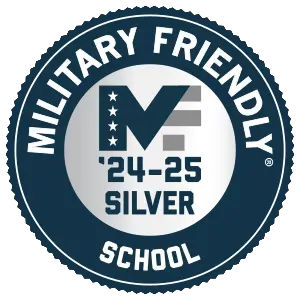Why Do Students Turn to Career Training Programs?

Today, the career college is one of the most preferred routes to job training. While some students choose to attend a four-year college or university, many enroll in accelerated, career-specific programs to pursue professional success and advance career training.
In fact, in 2009, students who earned an occupational credential were employed at a higher proportion than students who earned an academic degree.1
Let's examine three reasons why students turn to career colleges to obtain the skills and knowledge they need to pursue rising careers.
3 Reasons Students Choose a Career Training Program
The economy, business trends and the rising cost of a traditional, four-year education have all impacted the recent career college boom. Additionally, graduates of career colleges often cite several important factors that led them to pursue hands-on training at a career college, including:
1. Family atmosphere
If your idea of school resembles a tight-knit group of people rather than a sprawling campus, career college could be suitable for you! At a career training college, students are the focus. At traditional four-year universities, classes often take place in large auditoriums full of students you’ll likely never have a chance to meet. Alternatively, a career training education provides a smaller learning environment where students get the opportunity to thrive as individuals who work closely with peers and instructors.
2. Hands-on, interactive education
Career colleges specialize in intense, practical learning taught by talented instructors who are passionate professionals with industry experience. Learning at a career college means you’ll get your hands dirty as you navigate the responsibilities of your field. Often, career colleges help you make the most of your job training by offering externship opportunities where you’ll get on-the-job experience before you graduate.
If you’re considering a career college education, it’s important to find out what courses you’ll be taking, as well as what courses you won’t be taking. A savvy career training program doesn’t require its students to enroll in classes they won’t need on the job, such as history or English. Instead, it focuses on building professional skills and knowledge for the workforce.
3. Friendly, supportive career services staff
You’ll find notably supportive faculty and staff at many career colleges. Faculty, advisors and other staff are immersed in the job training approach to education, and they are often connected to industry leaders and recruiters. These connections allow them to provide targeted, individualized support for students from enrollment to graduation and beyond.
Indeed, some career colleges afford students the opportunity to receive help with resumes, cover letters, interview best practices and interpersonal skills such as dependability, honesty, professionalism, and critical thinking. Choosing a career training college means you’ll be supported at every step of your educational journey.
Are you ready to upgrade your potential and show yourself you can take the next step?
At Ohio Business College, students, instructors and advisors are ready to play a part in your journey to success. As you make the decision to enter an exciting career training program, let us know how we can help answer your questions. Contact us today to begin the next chapter to your career.
| Learn More |
Sources:
1 U.S. Department of Education, Institute of Education Sciences, National Center for Education Statistics, 2003–04 Beginning Postsecondary Students Longitudinal Study. Accessed Sept. 18, 2017. https://nces.ed.gov/surveys/ctes/figures/fig_2016107-2.asp.

